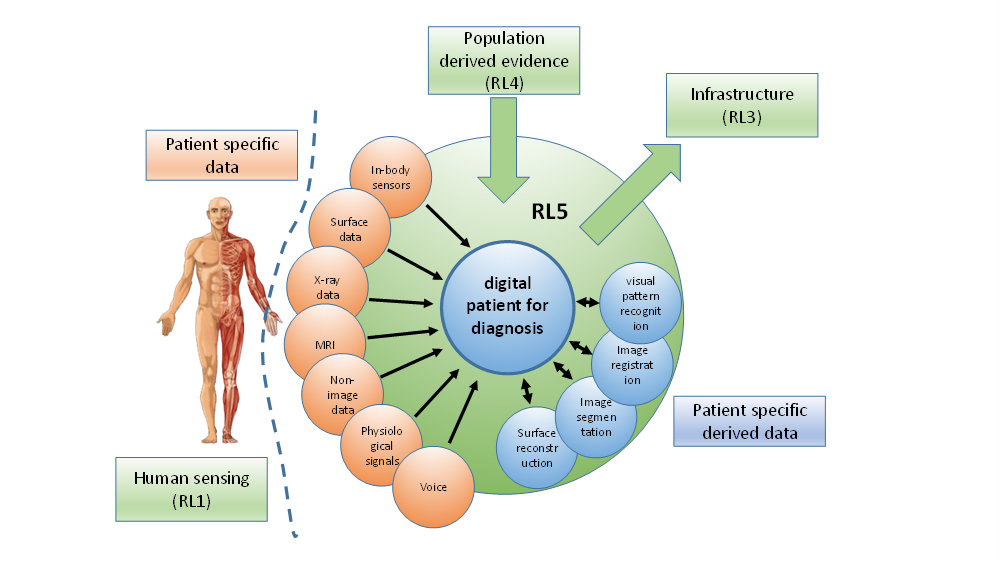Project Description
NanoSTIMA – CAD
NanoSTIMA – CAD – Advanced Methodologies for Computer-Aided Detection and Diagnosis (Research Line 5 from NanoSTIMA*)
Abstract
One of the primary aims of this research line is not merely to follow trends or evaluate the latest imaging technology, but to develop new capabilities for future research and development as well as potential commercial clinical outcomes. We will face the problem of a faster evolution of modalities, with increased complexity, requiring a faster evolution and adaption of CAD tools. This requires research on innovative methodologies for CAD development, that allow to switch from ad hoc engineering approaches, driven by the automation of direct expert knowledge, to more automated approaches, driven by the intrinsic structure of data, knowledge discovery and expert supervision. Problems tackled will be generic in that appropriate outcomes can be applied universally to medical imaging (e.g. radiology) practice as a whole. Such research may be termed “Generic Enabling Research (GER)”. In order to tackle the specific objectives of this research line, we approach the problem from a number of different inter-related work packages, each with its own requirements and objectives.
This GER-CAD framework aims at the computer-based assessment of several chronic diseases, like breast and lung cancer, and other systemic diseases as atherosclerosis, diabetes and hypertension with strong expression in the cardiovascular and ocular systems.
Outputs: See publications and
- Pedro Costa, Adrian Galdran, Maria Inês Meyer, Michael David Abràmoff, Meindert Niemeijer, Ana Maria Mendonça, Aurélio Campilho, Towards Adversarial Retinal Image Synthesis, arXiv:1701.08974v1 [cs.CV], January 2017.
- Interactive demo: http://vgcber03.inesctec.pt:3000/retina
- Open source code: https://github.com/costapt/vess2ret
Research line partners: INESC-TEC, IT and CINTESIS
Associated partners/advisors: CHSJ Breast Cancer Unit, CHSJ Ophthalmology, CHSJ Radiology, Champalimaud Foundation, Hospital Universitario de Caracas in Venezuela, and University of Wisconsin-Madison.
Acknowledgements
* Project “NanoSTIMA: Macro-to-Nano Human Sensing: Towards Integrated Multimodal Health Monitoring and Analytics/NORTE-01-0145-FEDER-000016” is financed by the North Portugal Regional Operational Programme (NORTE 2020), under the PORTUGAL 2020 Partnership Agreement, and through the European Regional Development Fund (ERDF).


